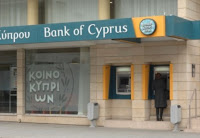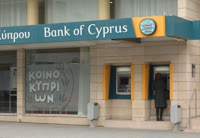But the most interesting thing - which ultimately affected the non-coverage - has to do with the attitude of Russian interests in Nicosia lately. As it is known, the main private shareholder of Bank of Cyprus until yesterday was a Russian tycoon, who controlled about 10% of its share capital.
However, with a decision that surprised everyone (or at least those who do not have inside information) he decided not to exercise his rights, which resulted in his participation in the bank's share capital falling by half, somewhere in the 5%.
Almost at the same time, in the other big banking "store" of the island, the Marfin Popular Bank (MPB), the discussions that took place with the second largest state-owned bank of Russia, froze for good.
And so, the prospect of the Russians buying a majority stake in the MPB is failing. Usually well-informed sources from the island state that "if the Russians finally get there, they will eventually get a very small percentage and nothing more." It is important, however, that lately Moscow's interest in the developments in Nicosia has been diminishing.
Both of the above examples are indicative of the climate. In Greece and Cyprus, in the last few hours, they are trying to interpret this change of attitude and the explanations given vary.
They start with the most imaginative, which have to do with the real energy reserves in the sea area of the island and reach the most realistic, which have to do with the losses that the Russians have recorded in their results, due to their involvement, indirectly, with the Greek problem…
Source: News Code

